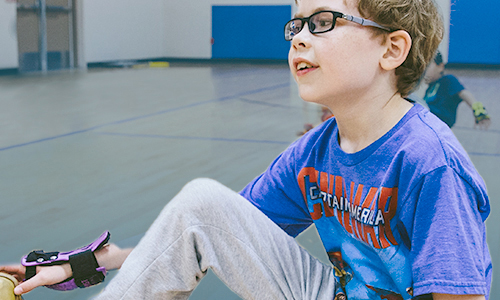
I am on a mission to inspire school leaders to push past their own limitations. We are at an exciting time in education, where assessment and other education data can lead to breakthroughs and make ordinary practices and experiences extraordinary. Assessments need to be given with enthusiasm and fidelity, and the results—all that data—studied and incorporated in the same way. This is all part of building your data identity as a leader.
In my first post about data identities, “K–12 data leadership: Be the change for your school community,” I highlighted seven steps that can help you become a strong data leader. Here I’d like to unpack two of them a little more:
- Rewrite your identity
- Self-reflect throughout
Allow me to reintroduce myself
To start to develop ourselves as data leaders, we may need to start by examining our data identity.
When I began my journey from math novice to math expert, my first step was to take a look at my math identity. For years (nearly my entire life, in fact), I had looked at myself as on the outside of math. Some of that identity may have been steeped in reality; I did struggle at times to keep my head above water in math class. But some of that identity may have been created by other factors that kept me stuck, like negative self-talk, shame, and fear. I felt that I should have been good at math, that my friends were better, and that my teachers would think less of me for asking questions. All this, unfortunately, became my own obstacle.
When I accepted a position teaching middle school math, I had to rewrite who I was as a math person, and that meant healing old wounds and silencing an old story. I knew my students would suffer if I carried my old math identity into the classroom, that it would create a collective weakness through transference, that my Achilles heel would become their Achilles heel. So I made a list to help me clearly capture my math identity and also hold me accountable in the ways I could rewrite it. Here are just a few of the beliefs I wrote down, along with the new beliefs I wanted to eventually hold instead:
- “I am not a math person” became “I am a math person. To feel more confident, I just need help with…”
- “My colleagues know more about math than I do” became “I want to find people with whom I can learn and collaborate.”
- “I am fearful and embarrassed to ask questions” became “Questions are necessary for professional growth, and I will ask them as often as I need to.”
- “As a student, my teachers made me feel bad for not being good at math” became “I will never make a student feel less than for not knowing something. I will be the teacher I never had.”
Change didn’t happen overnight, but the thing about small shifts is that they come with a certain momentum. Once I got going in the right direction, got over the hump, so to speak, the reimagining became easier. I found a great group of teachers with and from whom I learned and felt inspired. They hadn’t known me in my previous life as a “non-math person,” and I capitalized on that fresh start. I also took direction from school leadership and jumped at the opportunities for professional learning, knowing that intentional opportunities to learn and grow weren’t always guaranteed.
What are your beliefs about data and how do they shape your data identity? What would you like your beliefs to be instead? I encourage you to spend some time jotting your ideas down. That can give you a better sense of both where you’re starting from and what to aim for.
Take a look at yourself and make a change
As the distance between years spent in the classroom and years as a school leader grows for me, so does the tendency to forget some of my day-to-day teaching practices. Reflection, a foundational human skill, is so deeply ingrained in teaching, but it can easily be forgotten at the curbside when the car (to extend the metaphor) comes to whisk you to the leadership level. Part of that is because reflection takes time and, typically, something concrete to initiate it, such as an assessment. Teachers can’t run away from reflection because it is an immediate next step following lessons, tests, meetings with families, and other regular duties. But at the leadership level, sometimes the practice gets lost.
Once I was well on my Math Identity Redefining Tour, I made sure to keep myself grounded in the work by reflecting as often as possible.
Journaling became a big part of my life. I heard read rave reviews about The Five-Minute Journal, a daily commitment journal, which for a beginner made the task manageable and enjoyable. By starting and ending the day in a state of reflection and gratitude, I was able to keep myself centered and sight small shifts for the next day. I loved this structure so much that I committed to four years of it. Once I knew journaling was a habit, not a temporary fix, I moved away from a structured journal to a notebook. I’d often go back and revisit dogeared pages, and when appropriate I’d share my reflections with colleagues and friends to spark discussion. Sometimes, speaking vulnerabilities, hard truths, and hard-won lessons out loud cements them into your foundation.
When I wasn’t holding the mirror up to myself, I was thrusting myself into situations that forced reflection by making me “get comfortable with being uncomfortable,” as the saying goes. I’d sign up for the first intervisitation of the semester, open my classroom to high level observations, and seek professional learning that required me to turn-key the session. I’d open myself up for constructive feedback and I’d use those experiences to keep the mirror shined up and ever present.
Self-reflection action steps
I encourage you to find a daily reflection habit. Journaling, as I mentioned, is a great entrée to self-reflection that can fit into most people’s schedule. There a variety of journaling styles, so finding something that matches your personality shouldn’t be too difficult. More recently, I’ve moved to a grid notebook, so that I can compute in neat boxes as needed, but once upon a time a sketchpad was my go-to book because I needed space to doodle freely.
Podcasts are also a great way to keep you in the work. When I am home or traveling, I’ll find a few that provoke my thinking without exhausting me mentally. I keep them on in the background while I am going about my routine, and I am always pleasantly surprised when my ears pick up on something I should pay attention to.
Rewriting your data identity takes time
If you’ve ready any of my previous posts, you’ll be familiar with the grace I give to all human development processes, especially the journeys we embark on as adults to make ourselves better personally and professionally. Growth isn’t essential to our survival in the ways food and shelter are, but in my opinion, they are essential to our “thrival”: the full expression of living.
Breaking up with your former self is a worthy endeavor if it leads to a better version of you. But build some grace into this process. Don’t pick new habits with a heavy lift or that cause emotional fatigue. That’s why I liked journaling so much; it is a part of our collective social emotional lexicon and deeply supported in all circles. Reflection for an educator, a necessary component of growth, should feel like professional self-care. The confrontation that comes with honest reflection will be the first step toward these small shifts.






